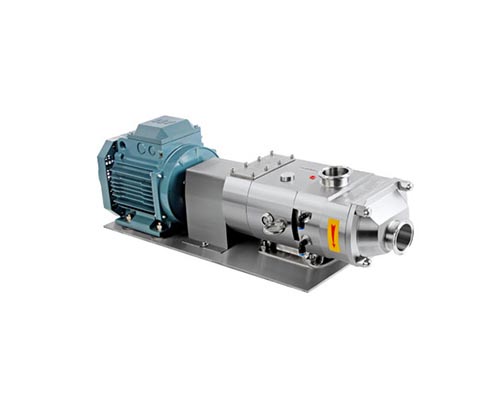In industrial production and daily life, we often encounter situations where we need to transfer liquids or gases from one place to another. This is when the propeller pump comes in handy. Propeller pump is a common pump equipment, its main role is to transfer the liquid or gas from the low-pressure area to the high-pressure area, or from a container to another container.
The basic principle of a screw pump
The structure of the screw propeller pump mainly includes the following parts:
1. Propeller: The propeller is the core part of the screw propeller pump, which is a rotating spiral body responsible for transferring liquid or gas.
2. Pump chamber: The pump chamber is the main part of the propeller pump, which is an enclosed space where the liquid or gas is conveyed.
3. Inlet: The inlet is the inlet part of the propeller pump, from where the liquid or gas flows into the pump chamber.
4. Outlet: The outlet is the outlet part of the propeller pump, from which the liquid or gas flows out of the pump chamber.
5. Motor: The motor is the driving part of the propeller pump, which is responsible for driving the rotation of the propeller.
The working principle of the propeller pump can be divided into the following stages:
Suction stage: When the propeller rotates, a vacuum area is created in the pump chamber from which liquid or gas flows into the pump chamber.
Compression stage: The propeller continues to rotate and the liquid or gas is compressed to the outlet.
Discharge phase: The liquid or gas flows out of the pump chamber from the outlet, fulfilling the purpose of transfer.
Screw pumps transmit liquid or semi-solid materials by rotating screws, and its working principle is similar to that of a screw conveyor. When the screw rotates, the liquid or material in the pump chamber is pushed to the pump outlet, which achieves the transfer of liquid. Screw pumps are usually composed of screw, pump casing, inlet, outlet, etc. Its structure is simple and efficient.
So, what exactly is the role of the screw pump?
Liquid Conveying: Screw pumps are mainly used to convey liquids from one place to another. It can transport various types of liquids, including water, oil, chemicals and so on. In industrial production, screw pumps are commonly used for conveying raw materials, chemical liquids, waste water treatment, etc.
Accurate metering: Screw pumps can achieve accurate metering of liquids by adjusting the rotational speed or adjusting the design parameters of the pump. This is essential in many industrial processes, such as chemical production, where the mixing ratio of different components needs to be precisely controlled.
High pressure transfer: Due to their design features, progressive cavity pumps are capable of transferring liquids at high pressures. This makes them very useful in applications where high pressure liquid transfer is required, such as transferring crude oil, high pressure cleaning etc.
Low-shear conveying: Screw pumps have low shear during the liquid conveying process, which makes them suitable for conveying liquids that are easily deformed or contain solid particles, avoiding damage to the materials.
Suitable for high viscosity liquids: Screw pumps are suitable for conveying high viscosity liquids, such as pastes, colloids and so on. Due to their structural characteristics and conveying principle, screw pumps are able to effectively handle these high viscosity liquids, ensuring the smooth running of the production process.
Countercurrent conveying ability: Screw pumps have good countercurrent conveying ability, and can achieve two-way conveying. This makes screw pumps the preferred equipment in some cases where the flow direction needs to be changed during the conveying process.
Corrosion resistance: some special materials of the screw pump has good corrosion resistance, suitable for transporting corrosive liquids. This makes the screw pump in the chemical industry, metallurgy and other fields of application more widely.
Comprehensive knowledge of the above points, screw pumps as a multi-functional liquid transport equipment, in industrial production has an important position and a wide range of application prospects. It can not only achieve efficient transport of liquids, but also has the advantages of accurate measurement, high pressure transport, suitable for high viscosity liquids, strong corrosion resistance, strong self-absorption, easy maintenance, etc. It is widely used in the fields of chemical industry, petroleum, food, pharmaceuticals and other fields, and provides reliable support for the production of various industries.



